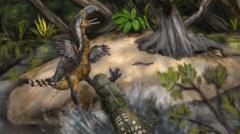At Holly’s Haven, a wildlife rescue center located in a rural area of Ottawa, the arrival of Cedar, a blind moose calf with an injured leg, has prompted significant changes. The center, which is home to various small wild animals, now faces the complex responsibility of caring for Cedar, who is about a month and a half old.
The center's founder and director, Lynne Rowe, has quickly learned about the specific needs of young moose in order to provide Cedar with the best possible care. Unlike typical rescue operations that aim to rehabilitate and release animals back into the wild, Cedar’s condition poses a unique challenge. Experts have indicated that despite the potential for limited vision restoration in his right eye, returning him to the wild would ultimately be fatal; young moose are particularly vulnerable to predators such as coyotes and wolves.
As Cedar grows, he could weigh as much as 700 kilograms (approximately 1,500 pounds) as an adult, making his care increasingly demanding. Rowe notes, "All the experts I’ve consulted, veterinarians and moose rehabilitators, confirmed that he is not releasable." With this in mind, Holly’s Haven is committed to providing Cedar with a safe and nurturing environment, following in the footsteps of Holly, the raccoon for whom the center is named, who also could not be released due to brain damage. Cedar may not have a conventional wild life ahead of him, but he has found a sanctuary where his unique journey can continue under the attentive eyes of dedicated caregivers.



















